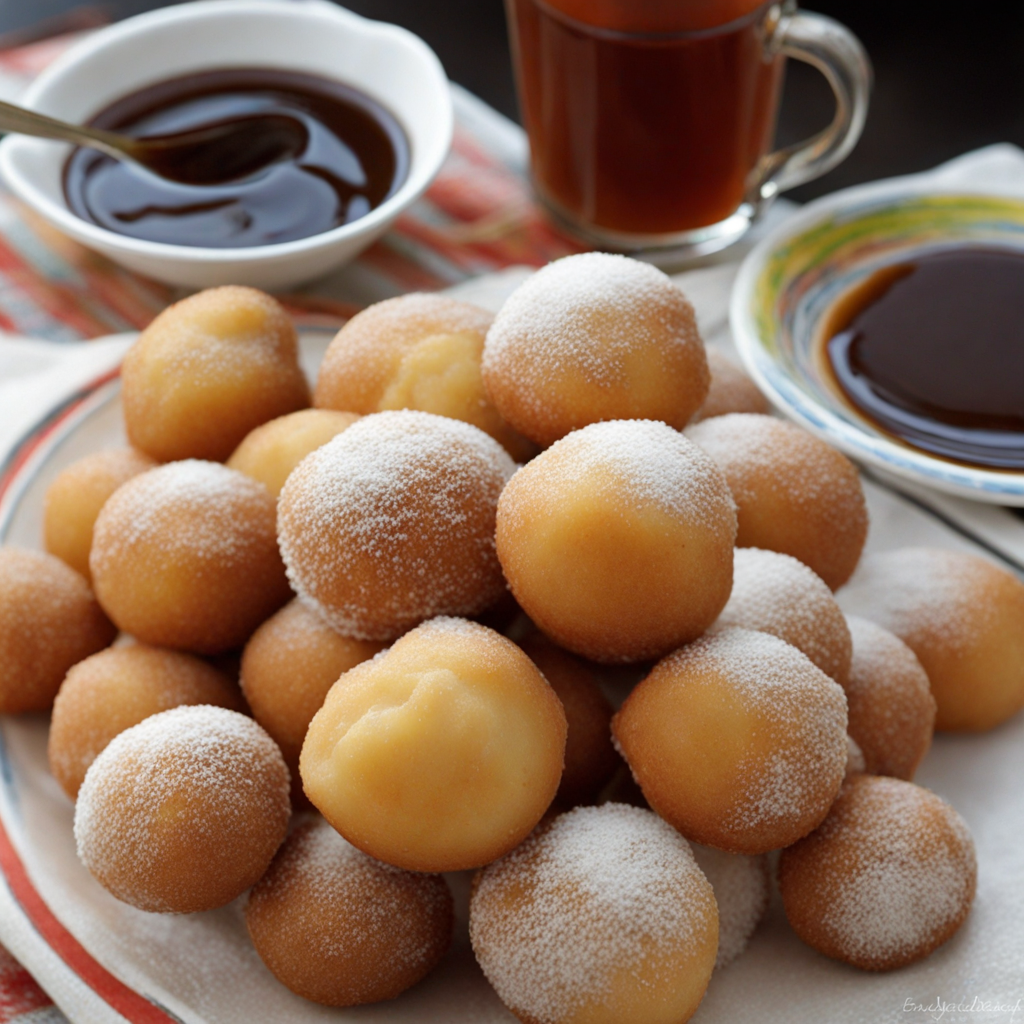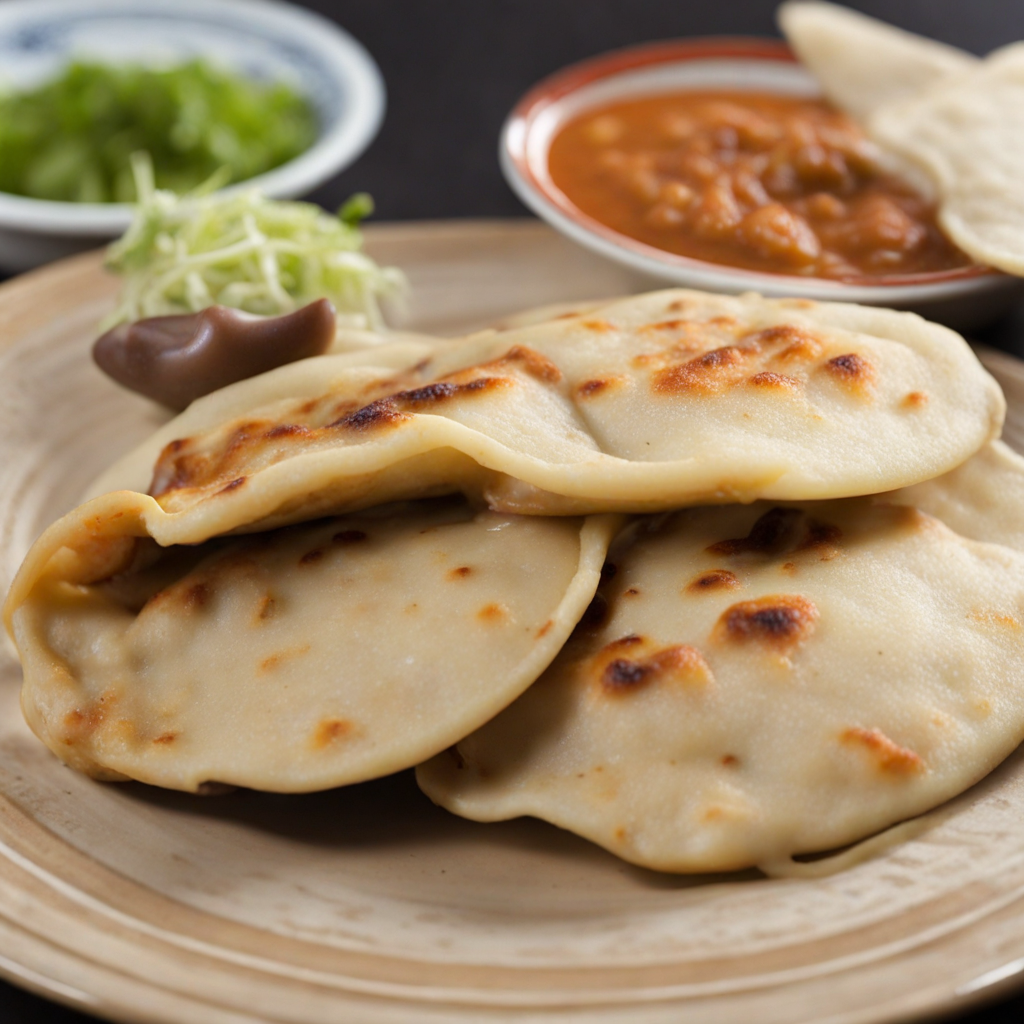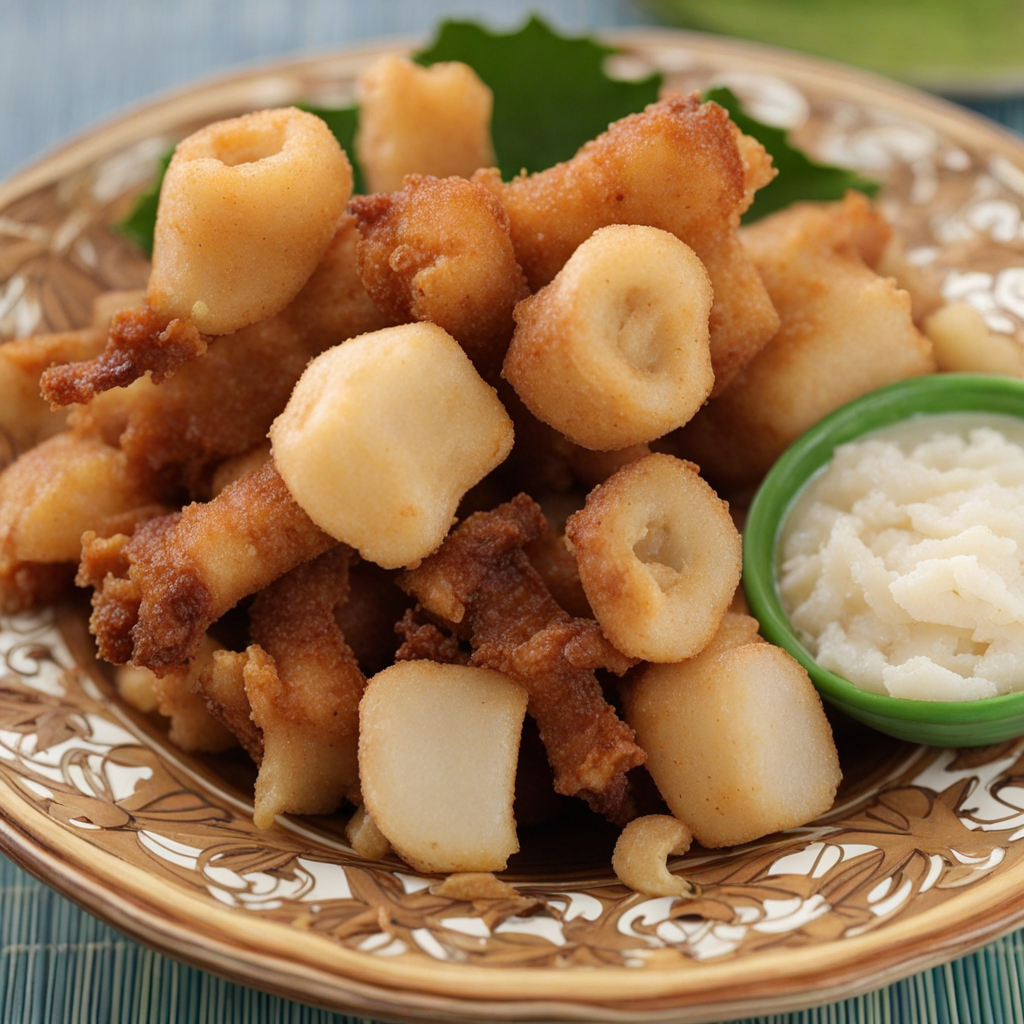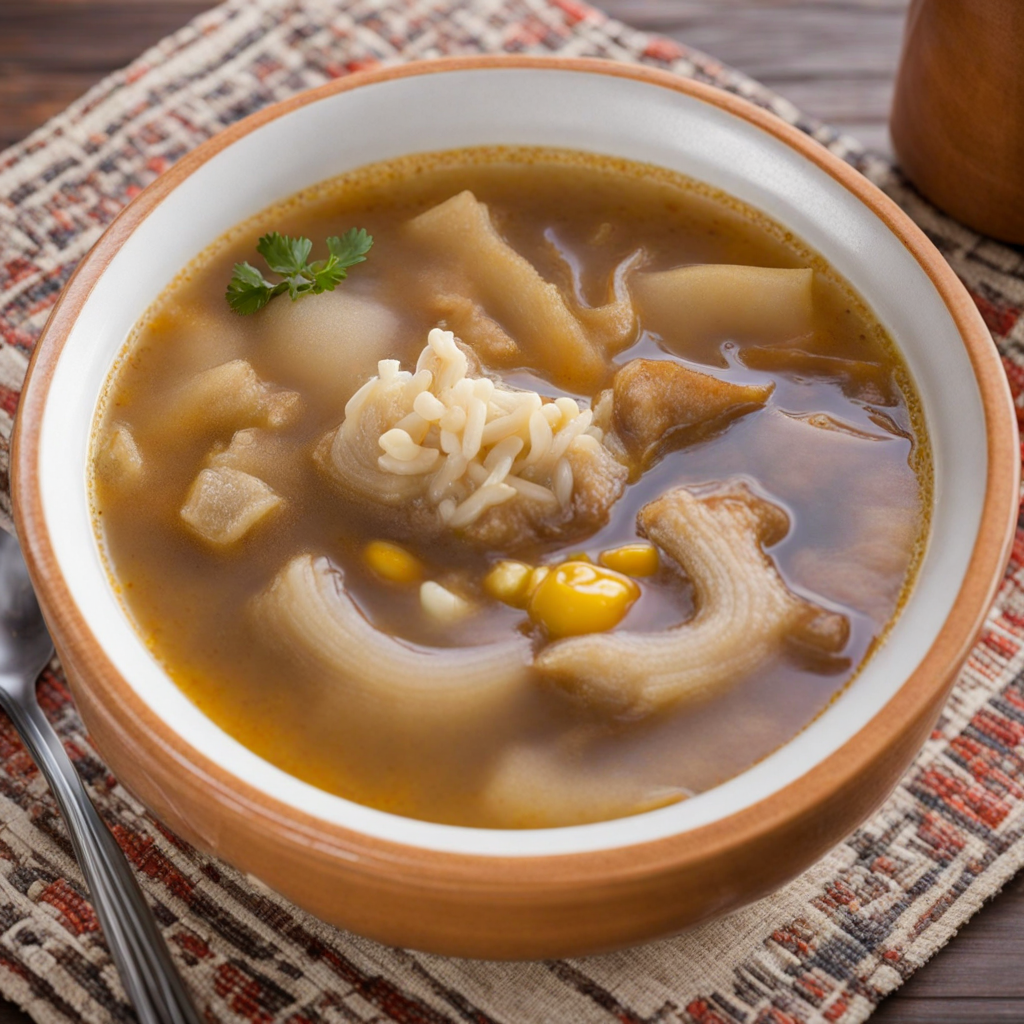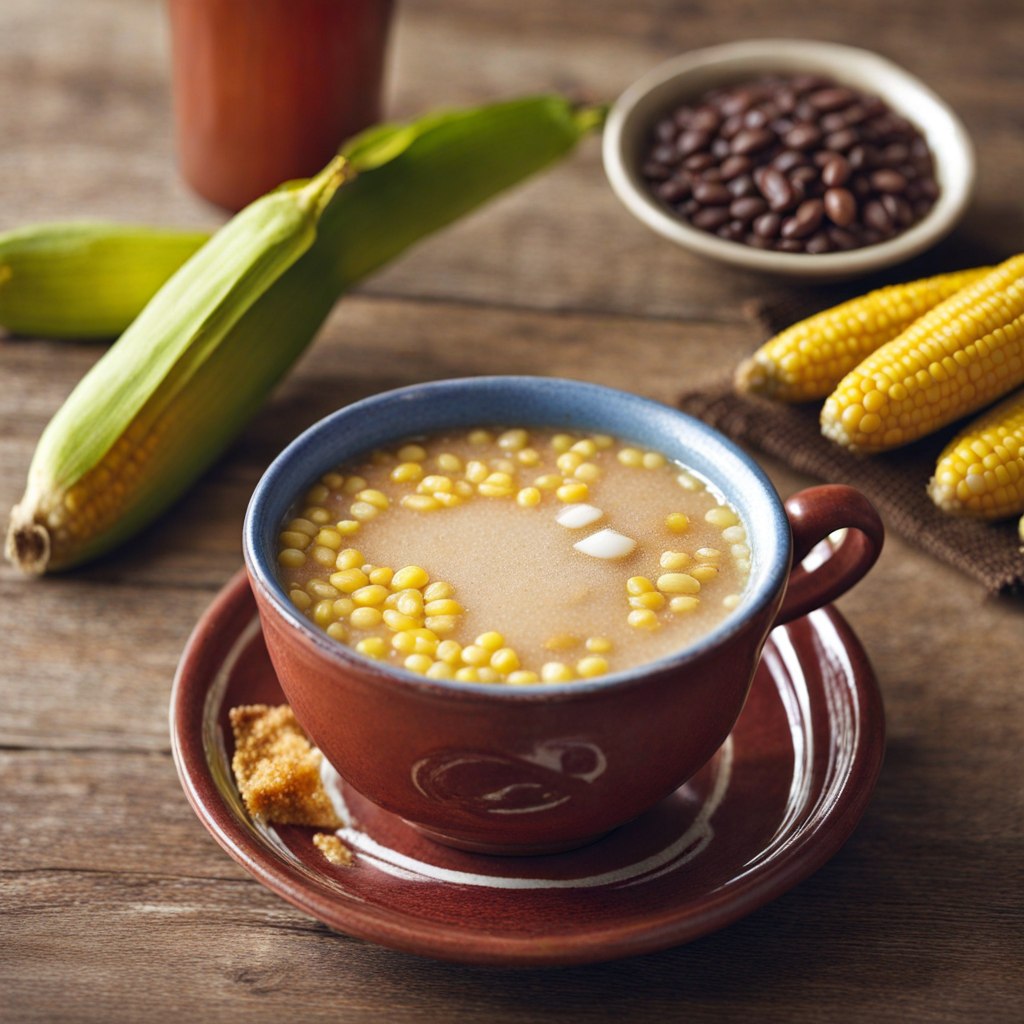Nuegados
Nuegados are a delightful Salvadoran treat that perfectly marry the flavors of traditional ingredients with a touch of sweetness. These small, round dumplings are made primarily from masa (corn dough) and are typically enriched with ripe plantains, which lend them a subtle sweetness and a unique texture. The dough is skillfully shaped into balls and often filled with a hint of cheese, creating a beautiful contrast between the dense masa and the creamy filling. When fried to a golden brown, nuegados achieve a crispy exterior that gives way to a soft, warm center that melts in your mouth. The preparation of nuegados typically involves frying them in oil until they are perfectly golden and crispy. Once cooked, they are often rolled in a mixture of sugar and cinnamon, enhancing their sweet profile. This sugary coating not only adds a delightful crunch but also elevates the flavor, making them irresistible to anyone with a sweet tooth. The aroma of freshly fried nuegados, combined with the fragrance of cinnamon, fills the air, inviting people to indulge in these delectable bites. Nuegados are traditionally enjoyed as a snack or dessert, often served warm with a side of syrup or honey for dipping. They are a popular choice during festive occasions and family gatherings, bringing people together over their shared love for this unique Salvadoran delicacy. Each bite of nuegados offers a taste of El Salvador's rich culinary heritage, showcasing the simple yet profound flavors that characterize the country's cuisine, making them a must-try for anyone looking to explore new and exciting tastes.
How It Became This Dish
The Rich History of Nuegados in El Salvador Nuegados, a traditional Salvadoran dish, encapsulates the essence of Salvadoran culinary heritage. These delightful treats, made primarily from mashed ripe plantains and often flavored with cinnamon and anise, are deep-fried to golden perfection and usually served with a sprinkle of sugar or drizzled with syrup. Their history is as rich as their taste, reflecting the cultural amalgamation and agricultural practices of El Salvador. #### Origins The roots of Nuegados can be traced back to indigenous Mesoamerican cultures, particularly the Pipil people of El Salvador. The Pipil, who are descendants of the Nahua people, cultivated a variety of crops, including maize, beans, and plantains. Plantains were an essential staple in their diet, and their use in cooking has persisted through centuries, evolving into the beloved Nuegados we know today. The arrival of Spanish colonizers in the 16th century brought significant changes to the local cuisine. The fusion of indigenous ingredients with European cooking techniques and flavors laid the groundwork for many traditional Salvadoran dishes. The introduction of sugar, cinnamon, and anise from Europe transformed the way indigenous foods were prepared, leading to the creation of Nuegados as a sweet and savory treat. Traditionally, Nuegados were made during festive occasions and religious celebrations, making them not just a culinary delight but also a symbol of community and familial bonds. Their preparation often involved the entire family, fostering a sense of togetherness that is integral to Salvadoran culture. #### Cultural Significance Nuegados hold a special place in Salvadoran culture, serving as more than just a snack or dessert. They embody the spirit of celebration and the importance of community gatherings. Commonly enjoyed during holidays, particularly during festivals such as Semana Santa (Holy Week) and the Feast of the Assumption, Nuegados become a focal point for family reunions and social gatherings. The dish is also deeply rooted in the agricultural practices of El Salvador. The cultivation of plantains is prevalent in the country, particularly in the coastal regions. The reliance on local agricultural products adds to the cultural significance of Nuegados, as they represent the connection between the land, its people, and their culinary traditions. This connection is vital in an era where globalization threatens to dilute local identities. Nuegados, therefore, serve as a reminder of the importance of preserving local foodways and traditions. #### Development Over Time As El Salvador evolved through the centuries, so too did the preparation and presentation of Nuegados. Initially, these treats were made in simple households, using basic ingredients and traditional methods. However, with the passage of time, various adaptations emerged that reflected changing tastes, availability of ingredients, and culinary innovations. In the mid-20th century, the rise of urban centers and the migration of rural populations to cities led to a shift in how Nuegados were made and consumed. Street vendors began to sell these delightful snacks, making them accessible to a wider audience. The growth of urbanization and the changing dynamics of Salvadoran society meant that Nuegados could now be enjoyed by people from all walks of life, transcending social and economic barriers. The commercialization of Nuegados has also led to the emergence of various regional variations. While the basic recipe remains consistent, different regions of El Salvador have put their unique spin on the dish. For instance, in some areas, Nuegados are served with a spicy tomato sauce, while in others, they are accompanied by a sweet syrup made from panela (unrefined cane sugar). These variations not only highlight regional ingredients but also reflect local preferences and culinary creativity. The growth of the Salvadoran diaspora, particularly in the United States, has contributed to the globalization of Nuegados. Salvadoran immigrants have brought their culinary traditions with them, introducing Nuegados to new audiences. This exposure has led to a revival of interest in traditional Salvadoran cuisine, with Nuegados often featured in cultural festivals and events celebrating Salvadoran heritage abroad. #### Modern-Day Nuegados Today, Nuegados continue to be a cherished part of Salvadoran culture. While they are still enjoyed during festive occasions, their popularity has expanded to everyday consumption. Modern interpretations of Nuegados can be found in restaurants, food trucks, and markets, where chefs experiment with flavors and presentations, incorporating contemporary culinary trends while still honoring traditional roots. Health-conscious adaptations have also emerged, as some chefs explore alternatives to fried versions of Nuegados. Baked or air-fried variations have gained traction, appealing to consumers who seek healthier options without sacrificing flavor. These adaptations speak to the evolving nature of cuisine, where tradition and innovation coexist harmoniously. Furthermore, Nuegados have become a canvas for culinary storytelling, with chefs using them to evoke nostalgia and cultural pride. They serve as a means of connecting generations, as recipes are passed down from parents to children, ensuring that the history and significance of Nuegados remain alive. #### Conclusion The history of Nuegados in El Salvador is a testament to the resilience of culinary traditions and the ability of food to transcend time and space. From their indigenous roots to their modern-day interpretations, Nuegados embody the rich tapestry of Salvadoran culture and community. As they continue to be enjoyed and celebrated, these delightful treats remain a symbol of heritage, connection, and the joy of sharing food with loved ones. In every bite, Nuegados evoke a sense of home, reminding us of the importance of preserving our culinary legacies for future generations.
You may like
Discover local flavors from El Salvador


